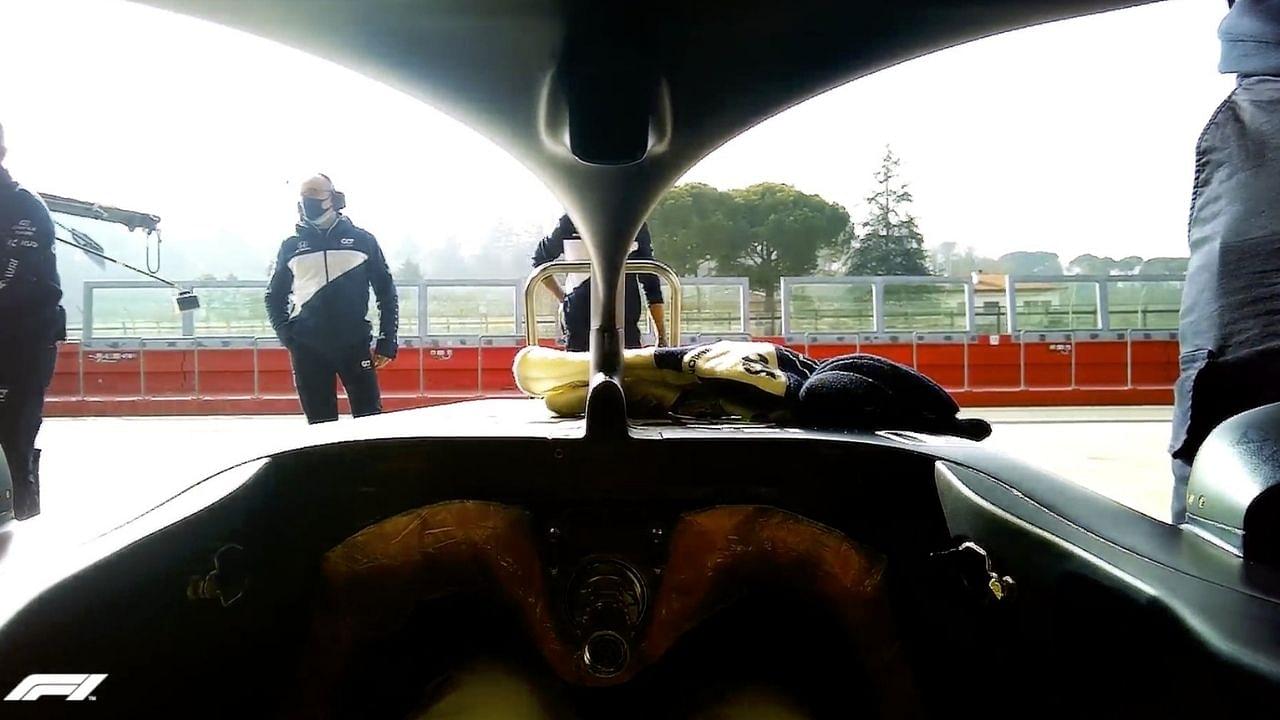“We’ve got some brilliant experience in camera technology”– F1 aims to bring in revolution to TV experience with the new driver eye-cam.
On Friday, fans were presented a new experience during the Belgium Grand Prix, where the drivers’ performance during the free practice sessions were viewed from their eye perspective.
It really gave a unique experience, and now Formula 1 envisions to adapt it for the future to revolutionize the TV experience for the fans, and the officials talk about what do they intend ahead.
Seatbelt fastened, visor down #BelgianGP 🇧🇪 alo_oficial pic.twitter.com/tnhcAlHknE
— Formula 1 (@F1) August 27, 2021
“We’ve got experience with helmet cameras going back 15 years, maybe more,” F1’s director of broadcast and media, Dean Locke, tells Motorsport.com.
“We’ve done some stuff with David Coulthard, and we did some stuff with what was GP2 at the time. So over the years, we’ve tried it several times.
“Most of those solutions were on the outside of the helmet. And as developments go on in F1, that’s not necessarily permitted. Hence why it’s always been tricky to do. So we were always looking to try and get inside the helmet, if possible.”
“We’ve done some bits, not necessarily in races, but around testing and pre-season testing. We’ve done some with glasses that had a little camera on. But to do that in an F1 event, in a race or qualifying session, it’s a completely different environment.
“Also don’t forget it’s sometimes easier to record and then use it later on. But to actually take that signal and colour correct it and everything else in a live capacity is a whole different ballgame.”
The unique experience it can provide
Locke further claims that his team doesn’t need a 4K experience with the eye-cam, and it would be even more immersive if fans get the immersive experience with the vibrations drivers to feel.
“We’ve got some brilliant experience in camera technology and delivery of camera technology,” says Locke. “So working closely with them, we think we can deliver a product that is up to F1 standard.
“We’re really working with them as the specialists, and then using our technology in acquisition and curation in getting a signal off a car at 200mph and getting that live into our systems.
“We’re working together to see if we can get it to the point that we’d be happy to use it in F1. And today was just the first start of that testing and seeing where we can get it better and better.
“We don’t need it to be full 4K pictures or anything like that, because I think that’s the unique thing about it, isn’t it? That it has the vibration and so on. But we have a lot of experience in that vibration technology and around that area that we can help them with.
“We’ve been working over the last few weeks on that delivery to try and get it to an excellent standard. We’re going to make some tweaks to the product and our delivery mechanisms to get the best out of it.
“And then again the week after, and the week after that. It’s still very much an experimental test base for us to get it to a really good standard.”




